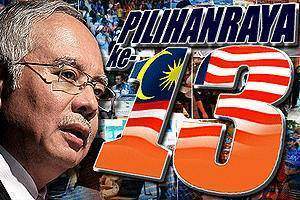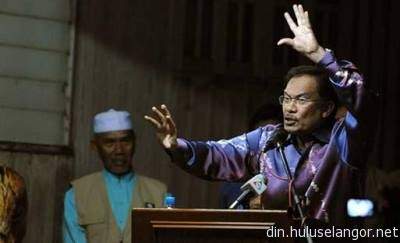 KUALA LUMPUR: The Economist Intelligence Unit (EIU), part of respected London-based magazine The Economist, predicts that Barisan Nasional will win the 13th general election based on its successful track record, Prime Minister Datuk Seri Najib Tun Razak’s reform agenda and his successful economic leadership.
KUALA LUMPUR: The Economist Intelligence Unit (EIU), part of respected London-based magazine The Economist, predicts that Barisan Nasional will win the 13th general election based on its successful track record, Prime Minister Datuk Seri Najib Tun Razak’s reform agenda and his successful economic leadership.
For international observers, the outcome of the upcoming polls is already clear, that Barisan will be victorious, the EIU said.
It also said the opposition Pakatan Rakyat has been making “costly promises” to gain power, and these were a big stumbling block.
On all these counts, Pakatan Rakyat comes a distant second, prompting the EIU to predict Barisan to be be the winner.
The EIU, a think-tank which offers regular country, industry and risk analysis, said “it is clearly not feasible” for Pakatan to implement all of its campaign promises.
For example, providing free secondary education would cost the Government RM43bil while abolishing car duties would cut tax revenue by RM4.6bil a year, it said.
The EIU pointed out that Pakatan had broken many of its earlier promises, including financial assistance for pre-school education, for university students, senior citizens and the disabled; free healthcare for those over 65; lower property taxes; and assistance for home buyers.
In Selangor, for example, Barisan claimed that Pakatan had implemented only 15% of its 31 election pledges, worth RM2.4bil, made in its 2008 general election manifesto.
“Selangor Mentri Besar (Tan Sri Abdul) Khalid Ibrahim commented that a manifesto is not a promise but conceded that voters may think otherwise,” the EIU noted.
“The stakes are high for both … the bidding war is likely to continue as both sides make preparations for what is being billed as one of the hardest-fought elections in Malaysia’s history,” the report said.
“Both will need to appeal to young, first-time voters, given that nearly three million people in this crucial voting block have been added to the electoral register since the last election,” it added.
The EIU claimed the “bulk of this group” was undecided about which party to vote for and could swing the outcome of the election.
Najib needs to win big in order to secure the future of his reform agenda, while on the other hand, Opposition Leader Datuk Seri Anwar Ibrahim wants to be the first to break Barisan’s stranglehold on power.
A key reason for the ruling coalition’s strong morale is the “gravity defying” growth of 5.2% that the country is enjoying under Najib’s leadership, along with a jump in domestic and foreign investments.
And to top it all, per capita income hit US$9,700 from US$7,500 in 2010.
The EIU agrees with the upward trajectory: “Following an estimated expansion of 5.2% in 2012, we expect GDP to grow at the same rate during the 2013-17 forecast period.”
Growth figures announced Wednesday by the Statistics Department showed that the economy accelerated to 6.4% growth in the last quarter of 2012 and supporting the full year growth to expand by 5.6% from 5.1% a year earlier.
Against such a backdrop, the EIU said: “No wonder the writing is on the wall for Pakatan as it tries to cobble together some opposition unity between its squabbling leaders before the polls.”










